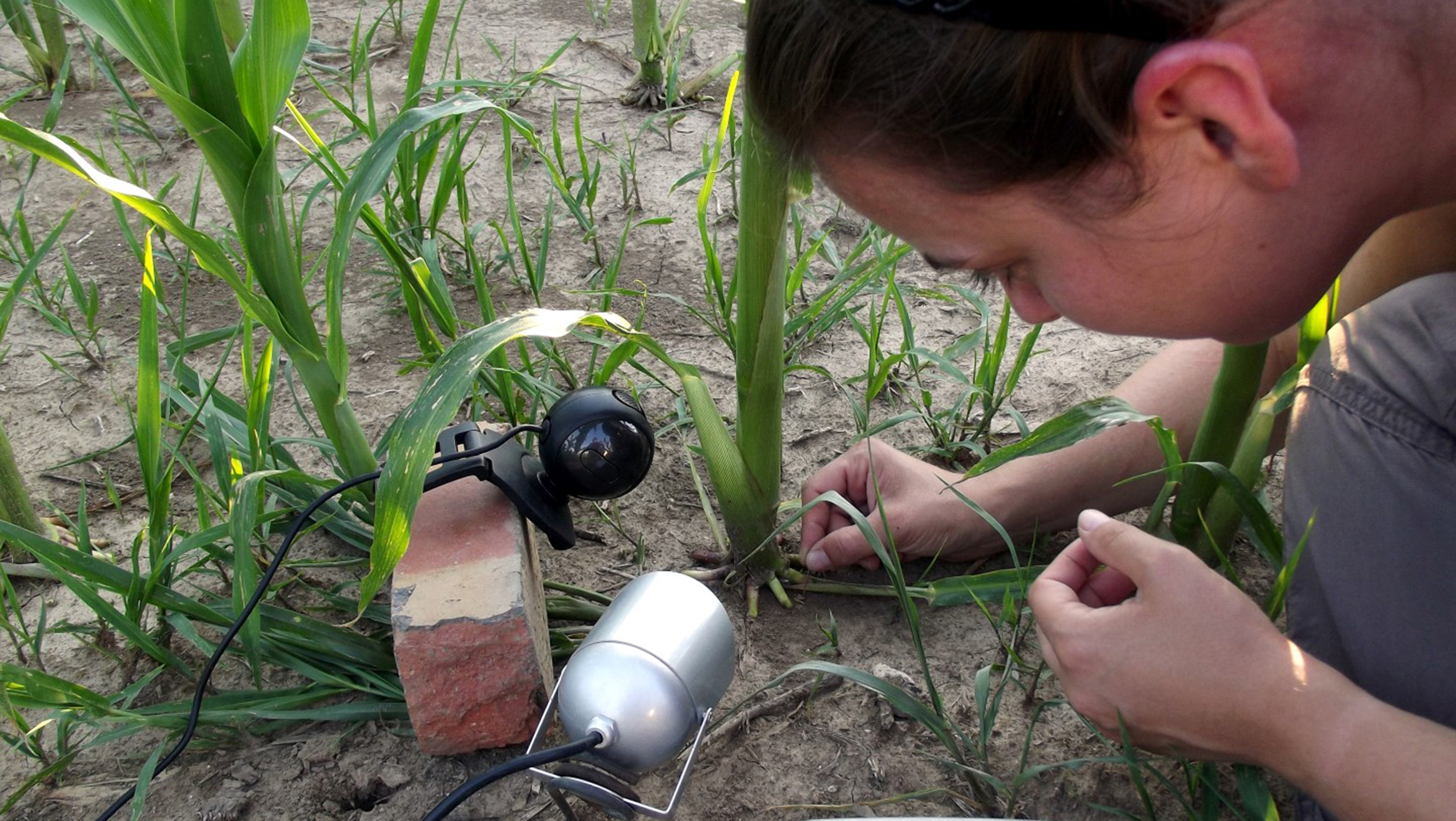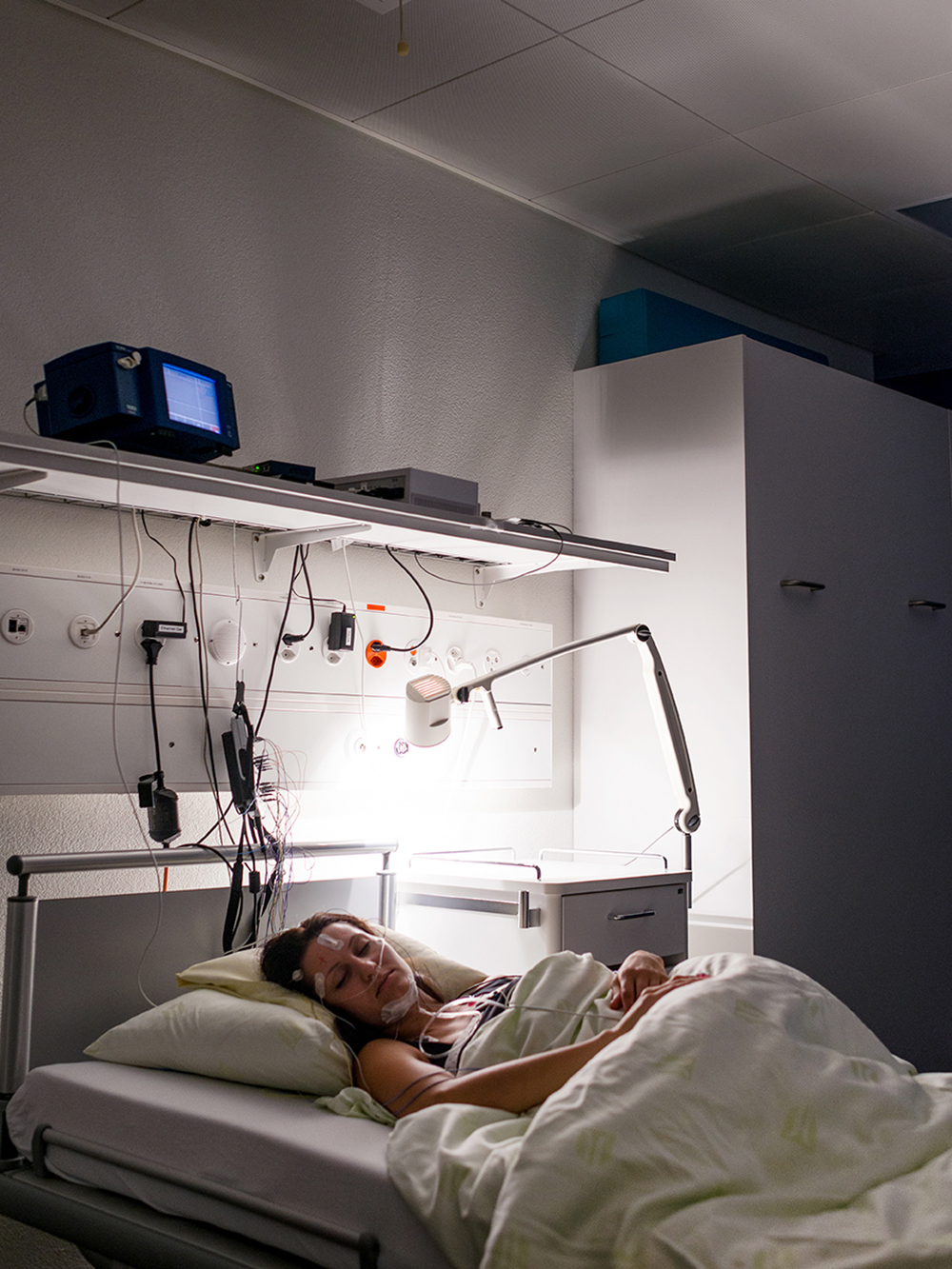University of Bern enhances research across disciplines
Research at the University of Bern is being intensified: Networking projects from different subject areas are being supported with three new Interfaculty Research Cooperations IRC. The projects deal with the health of environment, animals and humans, with religious conflicts and with sleep.
The University of Bern strikes a new path in research funding: With the Interfaculty Research Cooperations IRC, it is launching networking projects, each of which involves 8 to 13 research groups from different faculties and which are being specifically funded. At least two faculties must be involved in each IRC. "Complex problem areas such as migration or genetic modifications on humans can no longer be resolved within individual disciplines, but only in an interdisciplinary manner", Rector Christian Leumann says. "The University of Bern is in an ideal position for these new, interdisciplinary research approaches as a comprehensive university thanks to its broad academic profile." With the instrument of the IRC, the University of Bern is strengthening the scientific quality and topicality of its research. "We are thus enhancing our profile as a research-intensive university", Leumann says.
Possible new research centers
The IRCs are targeting their research on the five strategic areas of focus of the University of Bern: Health and medicine, Sustainability, Politics and administration, Matter and the universe as well as Intercultural knowledge. The research cooperations are each funded for four years with 1.5 million Swiss francs per year. Three projects have now been approved in a competitive process. The IRCs are based on the subject focuses of the National Centers of Competence in Research (NCCR) of the Swiss National Science Foundation. "If we enter new areas of research, it is entirely conceivable that this will yield applications for further National Centers of Competence in Research and thus new strategic research centers", explains Leumann.
Detailed information on the three projects:
1) Project "One Health: Cascading and Microbiome-Dependent Effects on Multitrophic Health"
| Managed by: Prof. Dr. Matthias Erb, Biotic Interactions Group, Institute of Plant Sciences, University of Bern Co-managed by: Prof. Dr. Andrew Macpherson, Department for BioMedical Research, Gastroenterology / Mucosal Immunology group, University of Bern Participating faculties: Science, Medicine and Vetsuisse Faculty. Participating groups: 9 research groups with expertise in microbiology, environmental sciences, plant and animal health, human medicine and bioinformatics. |
From soil to plants and ruminants to humans
The project "One Health: Cascading and Microbiome-Dependent Effects on Multitrophic Health" deals with an increasingly important area of research, in which interactions between the health of the environment, animals and humans are investigated. The 9 research groups are investigating in particular the influence of environmental changes on food chain systems – from soil to plants to ruminants and finally mice as a model organism for human health. For example, for the first time it is possible to carry out comparative analyses of how microbial communities react at various interfaces along the food chain to factors such as heavy metals, pesticides and vegetable secondary materials, and what influence these changes have on the health of the individual links along the food chain and the whole system. By combining their specialist expertise the research groups can observe health-related cascade effects within the food chain, which would otherwise not be possible for them. This constitutes a new approach in the One Health research area. The researchers expect that the gained knowledge will contribute to the understanding and remedying of pesticides in food chains.
2) Project "Religious Conflicts and Coping Strategies"
| Managed by: Prof. Dr. Katharina Heyden, Institute for Historical Theology, University of Bern Co-managed by: Prof. Dr. Martino Mona, Institute for Penal Law and Criminology, University of Bern Participating faculties: Faculty of Theology, Faculty of Law, Faculty of Human Sciences, Faculty of Business, Economics and Social Sciences, Faculty of Humanities and the Interdisciplinary Centre for Gender Studies (IZFG). Participating groups: 12 interdisciplinary research groups from theology, law, science of religion, Islamic studies, Jewish studies, political science, history, sociology, psychology, media and communication studies, literature and philosophy. |
Religious Conflicts and Coping Strategies
Despite the fact that conflicts with religious dimensions shape the past and the present, the significance of religion in social and political conflicts so far has not been conclusively identified or explained. Debate has focused especially on the issue of whether religions are simply exploited for other, perhaps economic interests or whether they themselves contain conflict-promoting or peace-building components. The research cooperation strives for a context-sensitive understanding of the ambivalent role of religions in conflicts to be able to develop suitable coping strategies. The main objective of the project is to create analytical models which examine the different economic, social, psychological, cultural and political factors that contribute to conflicts, describing their relation to religious beliefs, religious rhetoric, religious motivations and actors. For this purpose, the 12 groups are researching past and current religious conflicts and coping strategies. They are thus linking historical, cultural as well as social science methods with internal religious perspectives. The content and the methodology of this IFK should make a significant contribution to two strategic areas of focus of the University of Bern: intercultural knowledge and sustainability.
3) Project "Decoding Sleep: From Neurons to Health & Mind"
| Managed by: Prof. Dr. med. Claudio Bassetti, Chairman and Physician-in-Chief, Department of Neurology at Inselspital, Bern University Hospital as well as Vice-Dean of Research of the Faculty of Medicine, University of Bern. Co-managed by: Prof. Dr. Fred Mast, Head of Cognitive Psychology, Perception and Research Methods, Department of Psychology, University of Bern. Participating faculties: Medicine, Human Sciences and Science Faculty. Participating groups: 13 research groups from neurology, psychology, physiology, psychiatry and psychotherapy, pneumology, infectiology and informatics. |
Decoding sleep: Its significance for health and quality of life
Sleep has remained almost unchanged in the course of evolution, which indicates its fundamental importance for survival. Sleep research in humans and animals suggests that the body uses sleep to save energy and for recovery and repair processes in the brain and in various organs. In mechanisms connected to sleep, it has also been proven that these promote the capacity of the brain to regenerate and restructure itself, as well as brain maturation and cognition. The research cooperation wishes to achieve a better understanding of the mechanisms of sleep, consciousness and cognition with the three areas of "Brain – Mind – Body". Finally, sleep-wake disorders could be the first signs of illnesses such as Parkison’s and dementia or depression. For this purpose, molecular and neurophysiological processes of sleep and sleep disorders and their link to brain damage, pain and infections is examined. In addition to this, with the aid of sleep, new insights should be gained into cognitive and neuroplastic processes. In this way, the importance of sleep for mental health, brain functions and physical performance in healthy and sick conditions are examined in animals and humans. New model calculations of sleep phases should be developed from the "big data" of individual project groups - with the aim of identifying new biomarkers for sleep and sleep disorders. For this, the IRC can rely on the university centre of excellence "Center for Cognition, Learning and Memory (CCLM)", the nationally operating "Bern Network for Epilepsy, Sleep and Consciousness (BENESCO)", internationally established networks and highly specialised infrastructures such as the "Sleep-Wake Epilepsy Center Bern", the "Center for Experimental Neurology" or the "Swiss Institute for Translational and Entrepreneurial Medicine (sitem-insel AG)". Thanks to its focus on personalised medicine and biomedical technology, it contributes to the reinforcement of Bern as a medical center.
2018/01/24



